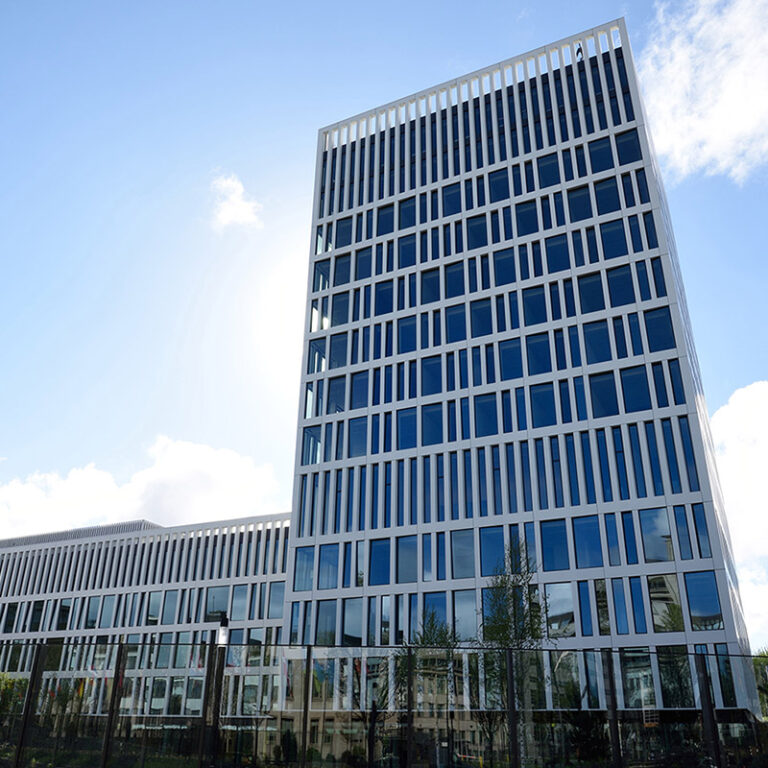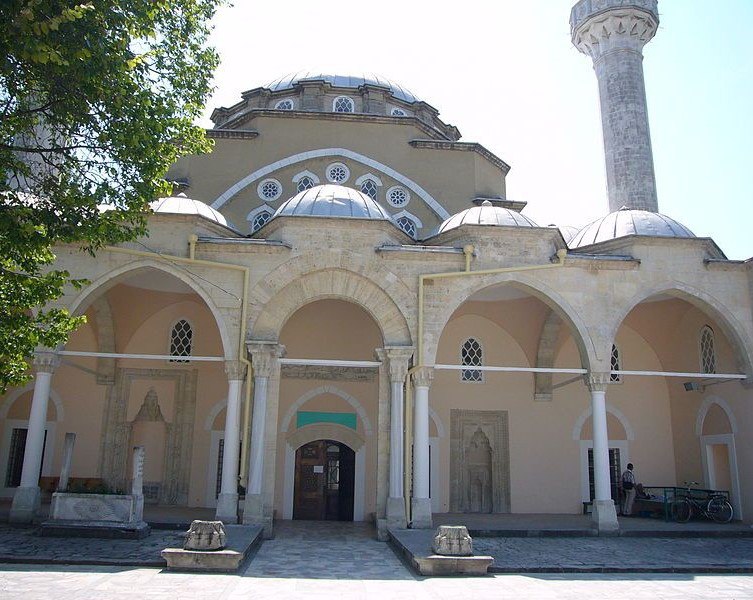On June 2023 Jon Richardson, former Australian diplomat who covered Eastern Europe, Belgrade, London and Canberra and also served as the Australian High Commissioner in Nigeria and Ghana, wrote an article for “Inside Story” edition “Crimea’s Tatars and Russia’s war” where he pointed that the fate of a displaced people lies at the heart of the war in Ukraine and stressed an opinion how it might be resolved
Regarding Mr. Richardson’s interest for Crimea and Crimean Tatars and his relevant results, our Association’s representative Borys Babin communicated with Australian exert and took his comments on questions, pointed by ARC.
Borys Babin (B.B.)What next steps on the international legal and political level may be most effective for defending the rights of the Crimean Tatar people?
Jon Richardson. In my opinion, the primary task should be to continue to raise awareness among governments and public opinion internationally about the story of the Crimean Tatars and why their views should be given priority in deciding the future of Crimea. This is something that not only the Ukrainian government and Crimean Tatar organisations can promote but also other governments and social and political organisations sympathetic to Ukraine. Such organisations might include human rights groups, labour unions, political parties, and bodies representing indigenous peoples.
Unfortunately, too little is known internationally about the Crimean Tatars’ history and current situation. But their cause and the cause of the Ukrainian independence and sovereignty should be mutually supportive.
Too often people think there is some “reality” behind claims that “Crimea naturally belongs to Russia” either “because of history” or because there is a substantial Russian population in Crimea, or even the sham 2014 “referendum”. Of course these are not valid “arguments” – in particular, because the whole post-Second World War order under the United Nations categorically rejects using force or shifting borders on the basis of national minorities or historical claims.
However, many people don’t appreciate the importance of those rules. Getting people to understand the rights and mistreatment of the Crimean Tatars will help counter support for the “idea” that Crimea somehow “is naturally” Russian. Many are broadly supportive of minority and indigenous rights and are sympathetic to the “underdog”.
It should also be a priority for the Ukrainian government and Crimean Tatar representatives to make these points to governments and the public in non-Western countries in Asia, Africa and the Middle East, where the struggles of minorities and dispossessed peoples resonate. For example, many Arab and Islamic countries take a strong stand on Palestinian rights and view the situation in the West Bank primarily as an illegal occupation. They should be encouraged to understand the similarity of the situation in Crimea, and that it is not just about Ukraine and Ukrainians in general but Crimean Tatars and other indigenous peoples of Crimea in particular.
It is also essential that Crimean Tatars and the Government of Ukraine continue to highlight the situation in Crimea with international organisations such as the UN Human Rights Council and the High Commissioner for Human Rights, the Council of Europe and the European Union.
B.B. Ukraine and some other states such as Canada, Latvia and Lithuania recognized Soviet deportation of Crimean Tatars as genocide. Are there some perspectives for such recognition in Australia?
Jon Richardson. I cannot be certain, but to my knowledge it has not been actively discussed in any of Australia’s parliaments – neither the national parliament nor the legislatures of our six States and two Territories. However, I don’t see why it couldn’t be raised, given that some legislatures have recognised the Holodomor as a genocide, and the Crimean deportations and Sürgünlik were equally destructive and genocidal. It will help demonstrate that Ukrainians are concerned to have a healthy multicultural society in Ukraine respecting minorities – something that is highly valued in Australia, which is now a strongly multicultural country, with ethnic communities from all over the world: about 30 percent of Australian residents were born overseas.
Australia doesn’t have as big or well-organised Ukrainian community as in Canada so this may not be an issue they are fully aware of. The Ukrainian community is also very preoccupied at the moment with the war as a whole. It would be good if Ukraine’s Crimean organisations could encourage them to support such an initiative. But it should also be possible for people who understand the Crimean Tatar issue to take up this issue with the Australian Parliament, with the broader aim of promoting deeper appreciation of the current situation in Crimea and of the Crimean Tatars. The Australia-Ukraine Parliamentary Friendship Group, which was launched earlier this year, could be a vehicle for such action. I will discuss this further with some relevant people in Australia.
B.B. Reintegration of Crimea after its de-occupation by Ukraine is possibly connected with transitional justice issues as some experts say. What are your positions and proposals for such ideas?
Jon Richardson. This is an important question that a number of experts in Ukraine and internationally have discussed. …I understand there was some discussion about introducing a law on transitional justice in the Verkhovna Rada but I don’t know what progress was made. It seems clear that it is important in a post-conflict situation to establish the truth and causes of events as well as institute accountability for crimes and human rights abuses. It is also important that these processes also promote reconciliation and establish foundations for a peaceful and democratic future, alongside restorative justice.
None of this will be straightforward, particularly after the major population changes in the peninsula after 2014. Drawing on international best practice, with the support of the UN, will be important. At the same time, involving local people including survivor groups will also be essential, with the possibility of creating solutions unique to Crimea and Ukraine.
B.B. Are the indigenous peoples’ organizations in Australia and the whole Pacific region aware about discrimination and repression against Crimean Tatars and are there any practical possibilities to raise their awareness on those issues?
Jon Richardson. As with the general population in Australia, I don’t think there is a high level of awareness about the Crimean Tatars among indigenous communities here, nor in the South Pacific region as a whole. Indigenous issues have great prominence in Australia at the moment: there is a referendum planned later this year to change the constitution to establish a Voice to parliament and government – a body representing aboriginal and Torres Strait Islander people and making recommendations on issues affecting them. The aim is to give recognition in the constitution to our First Nations as people who have lived on this continent perhaps for more than 60,000 years – which would be before the first Homo sapiens settled in Europe, according to some scientists.
This change in the constitution – something which hasn’t been easy to do in our history – would also ensure there is a permanent body providing direct First Nations input into laws, programs and policies affecting indigenous peoples. It follows earlier steps towards reconciliation with indigenous peoples and recognition of historical wrongs – such as the establishment of land rights and native title over traditional lands, and the 2008 Apology of the Australian Parliament for past policies, in particular the removal of Aboriginal and Torres Strait Islander children from their families and communities.
It is therefore a good time to highlight in Australia the fact that the Crimean Tatars have been recognised as an indigenous people, and that the Mejlis has been recognised as a representative body by the Ukrainian Parliament. While indigenous organisations in Australia will be preoccupied at the moment with the referendum campaign and their own struggle for improving the lives of their communities, they should also be receptive to learning about the Crimean Tatar issue, particularly as the war in Ukraine commands a lot of attention in the news and public debate.
The Australian Government also appointed an Ambassador for First Nations People for the first time in March this year, Mr Justin Mohamed. While his primary focus will be on how Australia’s international engagement contributes to our indigenous communities’ economic development and issues of concern to them, he also has a mandate to support indigenous rights around the world. This creates an opportunity to bring greater attention on the rights of Crimean Tatars in international forums.







